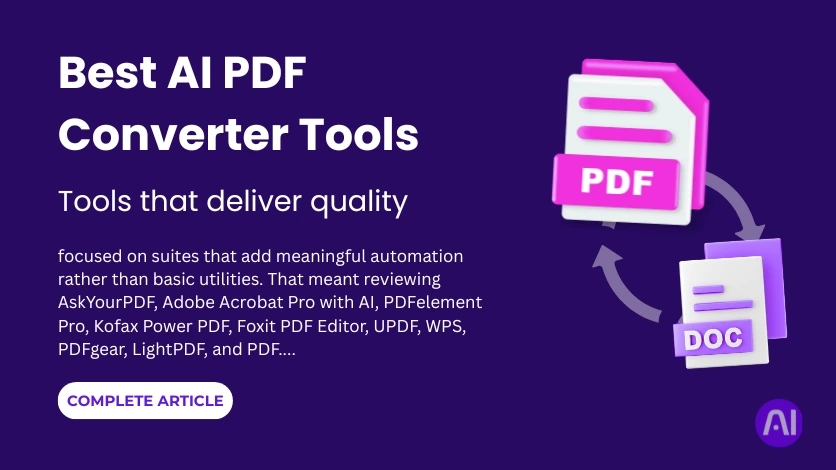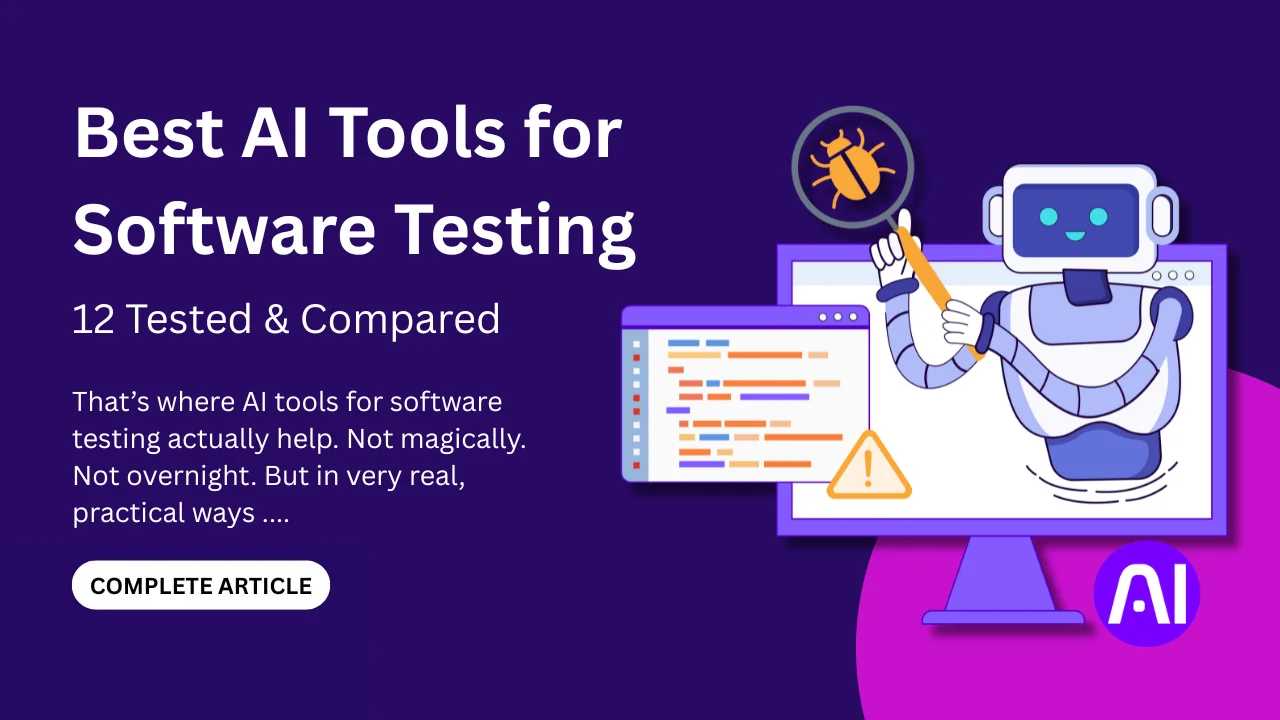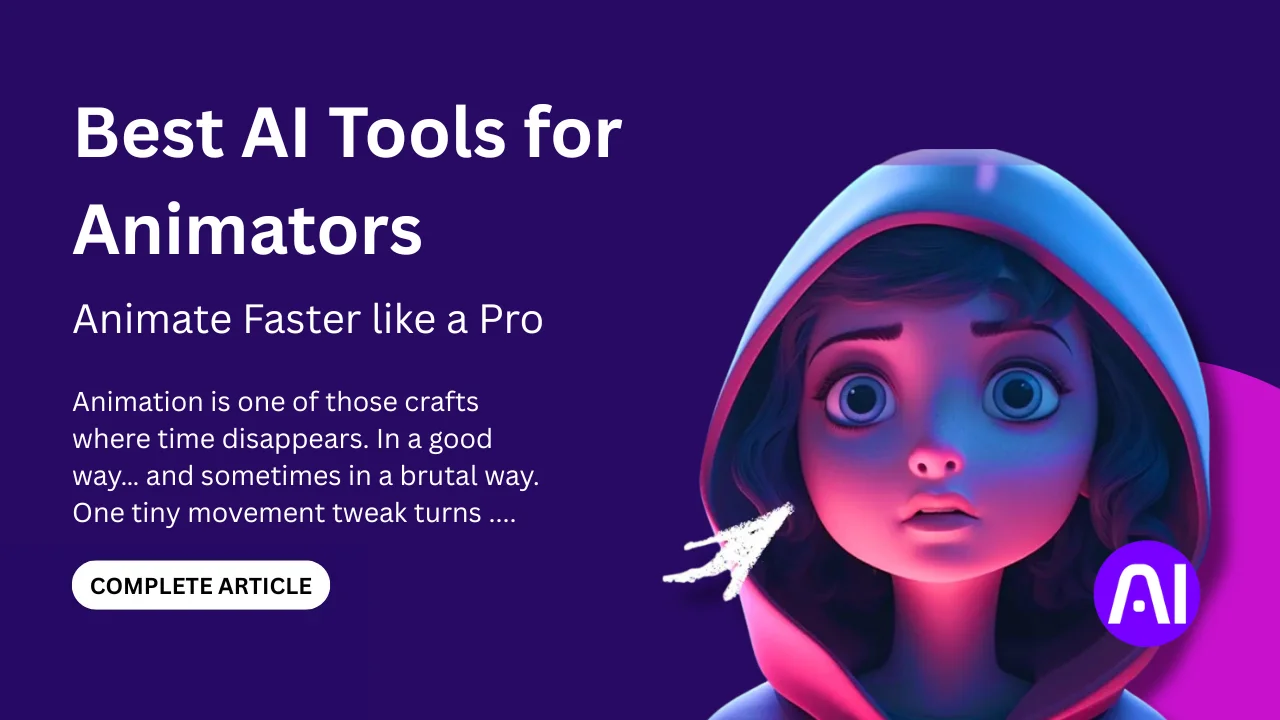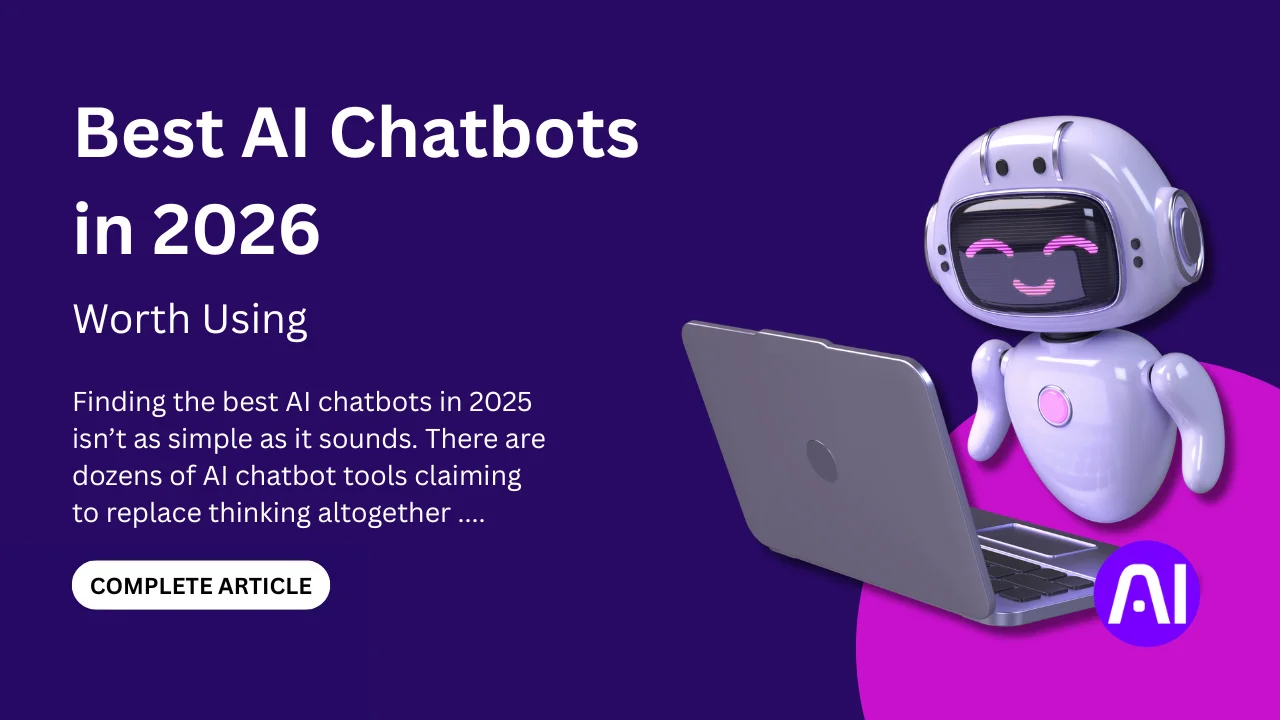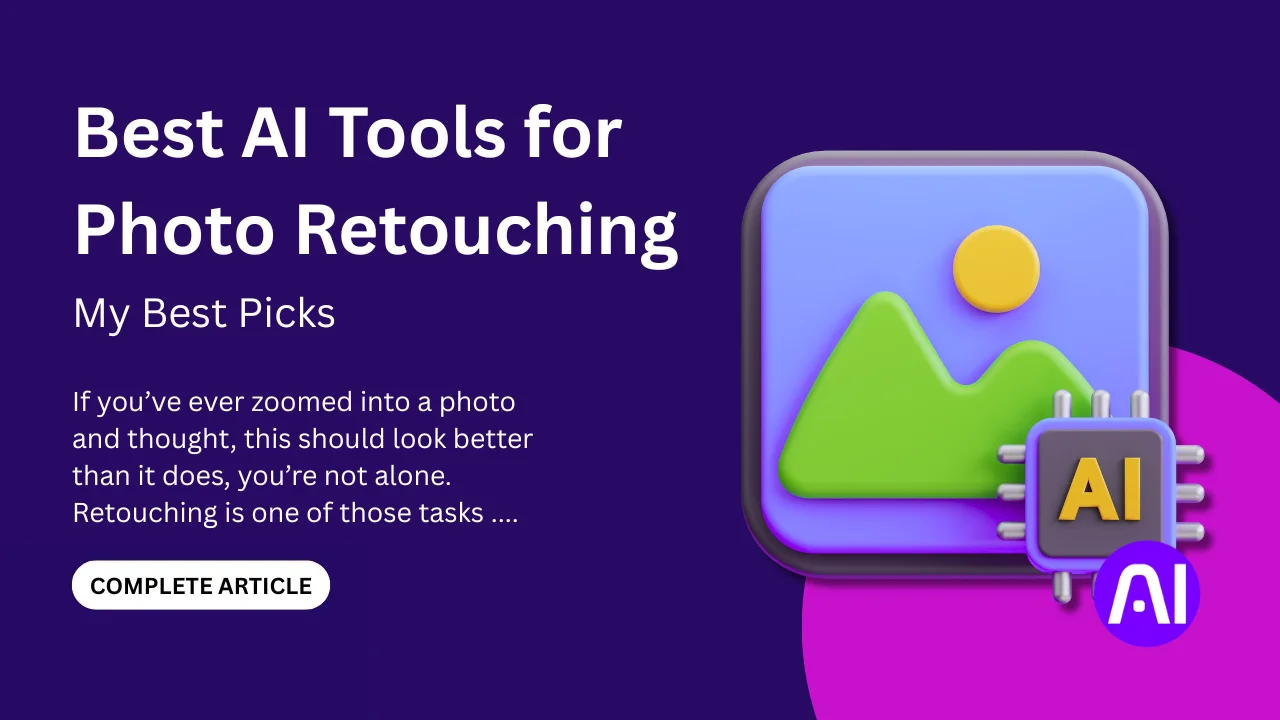Every student wants better grades. But not everyone knows where to turn for help. A learning assistance center powered by AI is the secret weapon that many students are now using to succeed in school.
These smart tools do more than just answer questions. They help with writing, organize your schedule, and improve how you study. They offer AI academic support services that are always available and easy to use.
This article explains how AI student tutoring centers are changing the way students learn. You’ll learn about AI study skills workshops, new tools inside AI learning resource centers, and the real benefits of utilizing AI learning assistance centers in universities. We’ll show how these tools work, who they help, and how AI learning centers enhance academic performance for every type of student.
What Is an AI-Powered Learning Assistance Center?
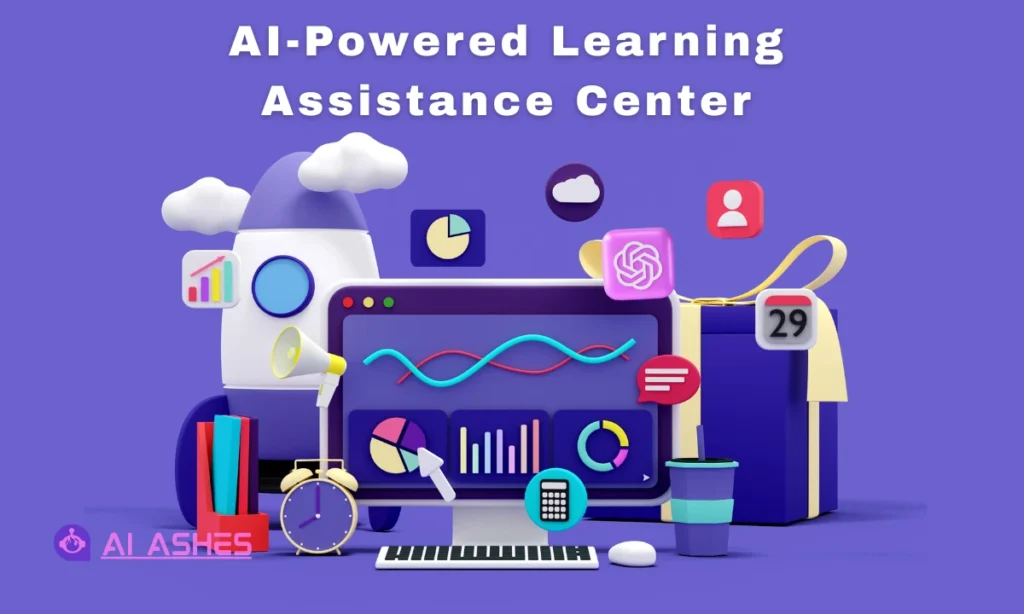
A learning assistance center is a place where students go for extra help with their studies. In the past, this meant meeting with a tutor or attending group sessions. But today, these centers are powered by AI and offer much more.
An AI-powered learning assistance center uses smart tools and software to help students learn better. These centers are open 24/7 and give fast, personal support. They guide students step by step, helping them stay focused and improve over time.
AI Academic Support Services
These services cover many areas. AI can help you write essays, solve math problems, and plan your study time. It gives quick feedback and shows you where to improve. Many students use these tools before tests or while doing homework.
The best part is that these services work with how you learn. That means they change based on your level, speed, and goals. This is called adaptive learning. You get the help you need when you need it most.
AI Student Tutoring Centers
AI student tutoring centers use programs that act like real tutors. They talk with you, ask questions, and explain hard topics in simple ways. These systems can even test your understanding and give you practice tasks.
These tools feel like having a private tutor, but without the high cost. They are easy to use and work on phones, tablets, and laptops.
AI Study Skills Workshops and Learning Resource Centers
Many schools now offer AI study skills workshops. These sessions teach how to manage time, take notes, and prepare for exams using AI tools.
AI learning resource centers offer full support for study and research. They include digital libraries, writing labs, and smart quiz tools. These centers help students build strong study habits.
New Trends in AI Learning Help
Some newer trends include:
- Intelligent tutoring systems that adjust to your answers
- AI-driven academic coaching platforms that track goals and progress
- Real-time feedback systems that build skills faster
These tools are making it easier for students to stay on track, understand subjects deeply, and feel more confident. AI is not replacing teachers. It is helping students get the most out of their education.
Benefits of Utilizing AI Learning Assistance Centers in Universities
The benefits of utilizing AI learning assistance centers in universities are big and growing fast. These centers help students learn better, faster, and smarter. From boosting grades to saving time, AI tools are changing how students succeed in college. Let’s break down the biggest advantages.
Higher Grades with Less Stress
Students who use AI-powered learning centers often see big improvements in their GPA. These tools break down hard topics into simple steps. They guide students through practice problems and offer tips in real time.
This means students get help right away. They do not have to wait for office hours or tutoring appointments. With fast support, they spend less time confused and more time moving forward.
One study showed that students using AI tutoring tools saw GPA increases of up to 20 percent. That is a big jump with no extra classes or costs.
Save Study Hours with Smart Tools
AI learning centers help students use time better. These tools track your progress and find the best way for you to learn. That’s called data-driven personalization. The system adjusts based on what you already know and what you need to review.
This means students don’t waste time on easy stuff. They focus on what really matters. On average, students using AI student tutoring centers cut their study time by 30 percent without lowering their grades.
Real-Time Feedback Builds Confidence
One of the best features of AI academic support services is real-time feedback. AI checks your answers right away. It gives suggestions and points out mistakes. You can fix problems before they grow bigger.
This fast feedback builds confidence. Students feel less afraid to try. They learn from small errors and do better on big tests. Over time, this leads to better writing, stronger problem-solving, and more focus in class.
Personalized Learning for Every Student
AI learning resource centers do not follow a one-size-fits-all plan. They adjust to each student’s needs. If you are fast at math but weak in writing, the system knows. It creates a study path that fits your skill level and goals.
This makes learning more personal and more fun. Students stay interested and feel in control. It also helps them build strong habits that last beyond the classroom.
Support for Students with Disabilities
AI tools help make college fair for everyone. Many systems include features for students with learning disabilities, visual challenges, or trouble focusing.
Some centers use voice commands, screen readers, and visual cues to help all learners stay engaged. AI also helps with text-to-speech and reading support. These features are great for students who struggle with reading or writing tasks.
Inclusive AI tools give equal access to learning. That’s a big win for education.
Mental Health and Emotional Support
Some AI coaching platforms are designed to support more than just academics. They check in on how you feel. If you are stressed or overwhelmed, they suggest breaks, calming exercises, or even connect you to school support services.
This mental health support is a game-changer. Many students drop out due to stress or burnout. With AI tools that care about well-being, more students can stay in school and do well.
The Future of Smarter Learning
Universities that offer AI study skills workshops and AI coaching are seeing big changes. Students feel more supported. They trust the process and grow at their own pace.
AI learning centers are not just for top students. They help everyone do better. Whether you are just starting college or working on your final project, these tools can make a real difference.
With AI learning assistance centers, the path to success is smarter, faster, and more personal than ever before.
How AI Learning Centers Enhance Academic Performance
How AI learning centers enhance academic performance is no longer a mystery. These centers are not just smart tools. They are real study partners. Students now learn faster, stay focused, and understand more. AI makes learning clear, simple, and personal.
Let’s look at how this works in real life.
Smart Tutors That Talk Like Humans
One good example is Iris, a chat-based virtual tutor used in many colleges. Iris answers questions in plain language. It helps students solve problems in math, science, writing, and more. It is always ready to help, even late at night.
A case study from the World Economic Forum showed that students using Iris learned faster than those who did not. Many students felt more confident. They said it was like texting a smart friend who knows everything.
This comfort builds trust. When students are not afraid to ask, they ask more and learn better.
Intelligent Tools Inside Learning Platforms
Many schools use Canvas, a digital classroom. Canvas now includes AI tools. These tools track your progress. They remind you about deadlines. They even help with your writing.
A recent study by the American Psychological Association found that students using AI features in Canvas turned in better assignments. They also made fewer errors. The system gives feedback as you write, not just after.
This is called a real-time feedback loop. It means you fix mistakes right away and get better with each try.
AI Study Skills Workshops That Work
Some universities now offer AI study skills workshops. These workshops show how to take notes, plan your day, and get ready for exams using AI. The tools used in these workshops help students stay organized.
They also teach how to break big tasks into small steps. This method lowers stress and makes goals easier to reach.
According to ATD (Association for Talent Development), students who attend these workshops are more likely to finish their programs on time. That’s a big win for both students and schools.
Personalized Learning Paths
One major way AI helps is through personalized learning paths. Not all students learn the same way. Some read fast. Others need more time. While many do well in math, they may still need help in writing.
AI tracks how you learn and what you struggle with. Then it builds a plan just for you. You move forward when you are ready. You review topics as often as you need. This is called adaptive learning.
Data from arXiv, a research site, shows that students using adaptive tools perform better on final exams. They also feel less stress and more control.
Better Grades Without Burnout
AI tools save time. They focus your energy where it matters. Students using AI student tutoring centers often spend less time studying but still see better results.
Reports from Business Insider and Wikipedia show that AI support systems reduce academic stress. This means fewer dropouts and more happy, healthy students.
These tools are not magic. But they are smart, fast, and always ready. That makes a big difference when classes get tough.
Coaching for the Mind and the Mood
AI also helps with your mindset. Some AI-driven academic coaching platforms check how you feel. If you are tired or stressed, they suggest small breaks or focus tips. If needed, they connect you to school mental health services.
This kind of care helps students stay strong inside and outside the classroom.
The Real Impact
Universities using these tools are already seeing results:
- Fewer missed deadlines
- Higher test scores
- Better class attendance
- More student confidence
All of this proves that AI learning centers enhance academic performance in a real and lasting way.
From AI learning resource centers to intelligent tutoring systems, the future of education is already here. And it is helping students do more, with less struggle, every single day.
Core Services Offered by a Modern Learning Assistance Center
Modern learning assistance centers offer much more than tutoring. Today, they use AI to support every part of the learning journey. These centers are fast, smart, and built for every kind of student. They help with grades, time, focus, and even mental health. Let’s explore their main services.
5.1 Adaptive Tutoring and Intelligent Feedback
One of the biggest changes in education is the rise of AI-powered tutoring. These tools act like real tutors. But they are always available and never tired. Students can ask questions, get answers, and learn step by step.
AI chatbots such as Khanmigo, built by Khan Academy, use language models to explain school subjects. They help students solve math problems, fix grammar, and write better essays. Canvas LLM tutors offer similar support inside the Canvas platform. They guide students while they work on assignments.
Another strong tool is Squirrel AI, used in schools across Asia and beyond. It offers personalized quizzes, diagnostic tests, and step-by-step feedback. By tracking how students learn, it helps identify weak spots and improve performance. Then, it builds a custom learning plan.
According to Business Insider and the U.S. Department of Education, these AI tutors help students reach higher scores in less time. Some schools report that students using AI feedback tools improved their test results by over 30 percent.
These tutors do not just teach. They also test and correct. This fast cycle of feedback means students learn faster and remember more.
5.2 AI Study Skills Workshops and Academic Coaching
Good grades need more than just knowledge. Students also need skills. This is where AI study skills workshops and coaching help.
These sessions are led by AI. They teach how to plan your day, take notes, and manage time. Students learn how to break tasks into small steps. AI tracks their progress and gives advice.
Academic coaching platforms now use AI to check habits. They can find if a student is missing deadlines or skipping topics. Then they offer tips to fix it. The system may suggest shorter tasks, more breaks, or smarter ways to study.
The Center on Reinventing Public Education found that students who attended AI-led coaching had better study habits and less stress. These tools teach students how to learn, not just what to learn.
American College of Education says these workshops are great for first-year students or anyone returning to school. They build habits that last through college and beyond.
5.3 AI Learning Resource Centers
A strong learning center needs good tools. That’s why many universities now have AI learning resource centers. These are online spaces that act like digital libraries. But they are smarter and more helpful.
Students can find:
- Curated study guides
- Custom flashcards
- Essay-writing helpers
- Research tools with citation support
These tools help with school work fast. You type in a topic, and the AI gives back short summaries, key facts, or helpful links. It can even check your work and offer feedback.
According to Wikipedia and Axios, some schools now build these AI libraries into their course platforms. This gives students access to help anytime, day or night.
These resource centers are perfect for group projects too. Students can share notes, track goals, and work together while the AI keeps them organized.
5.4 AI Mental Wellness and Accessibility Support
Smart learning is not just about the brain. It is also about how students feel. Many modern centers now include AI wellness tools to support the whole student.
These tools watch for signs of stress or burnout. They can track how long you study, how often you take breaks, or even changes in typing speed. If something seems wrong, the system suggests a pause or connects you to mental health help.
Some systems also offer breathing guides, sleep tips, and reminders to stretch or relax. This kind of care makes a big difference, especially during exam season.
AI tools also help students with learning differences. Features include:
- Text-to-speech for students with dyslexia
- Visual aids for students with attention issues
- Voice commands for students with mobility needs
These features help make learning fair and open for everyone.
A report by American College of Education showed that students with special needs had better focus and more success when they used these AI tools. They felt included and supported.
Even more, students with anxiety or depression felt calmer when they had AI tools keeping track of their progress. Knowing someone or something is “watching out” makes students feel safe.
The Whole Package for Smarter Learning
Modern learning centers do more than tutor. They guide, support, and care. From adaptive learning to mental wellness, AI touches every part of the student journey.
Today’s AI academic support services are fast, fair, and focused on the student. They help students get better grades, but also build confidence, good habits, and peace of mind.
This is why learning assistance centers are no longer just rooms on campus. They are powerful, AI-driven platforms that every student can count on.
Real User Experiences and Competitor Gaps
Many blogs like StudyMonkey.ai, Element451, and Park University’s site talk about AI in education. But most just explain what AI is. They often miss showing how students can actually use these tools. They don’t offer step-by-step help, real-life examples, or tips for using more than one AI service together.
This article does better. Here, you’ll see how students really use AI learning assistance centers, what problems they face, and what changes after using them. The stories below show how AI support works in real schools.
Case Study 1: Boosting GPA with AI Tutoring
User: Maya, second-year student at Arizona State University
Challenge: Maya was struggling in math. She said, “I used to spend hours on one topic and still not get it.”
Solution: Maya started using Canvas AI tutors for step-by-step math help. The system gave her daily quizzes, tracked weak areas, and sent reminders.
Takeaway: After 5 weeks, Maya’s test scores went up by 15%. She said, “I finally understood what I was doing wrong. I study less now, but smarter.”
According to a 2023 Penji survey, 71% of students using AI tutors felt more confident during exams.
Case Study 2: Saving Time with Study Skills Workshops
User: Jamal, freshman at Park University
Challenge: Jamal had poor time management. He often missed deadlines and felt lost with assignments.
Solution: Park University launched AI study skills workshops guided by smart tools from Element451. Jamal learned how to build a schedule, break big tasks into parts, and stay focused.
Takeaway: Jamal now uses 30-minute study blocks with AI reminders. “I didn’t know studying could be this simple,” he shared. His average study time dropped by 40%, and he now turns in all assignments on time.
Park.edu blog reported that students using Element451 coaching features had 2x higher task completion rates.
Case Study 3: Personal Growth Through Academic Coaching
User: Sofia, community college student in California
Challenge: Sofia was doing okay in school, but she lacked direction. She said, “I never knew if I was on track or not.”
Solution: Her school used Squirrel AI’s adaptive coaching system. It tracked her progress and gave tips on how to improve each week. It also helped with focus and set weekly study goals.
Takeaway: Sofia’s GPA rose from 2.8 to 3.4 in one semester. “I didn’t just get better at studying,” she said, “I became more confident in myself.”
American College of Education shared that students using AI coaching tools felt 60% more focused and motivated.
These stories show how real students solve real problems with AI. They’re not just using one tool. They mix tutoring, coaching, and study support. That’s the real power of AI learning centers, everything works together. Not just smart, but smarter together.
Step-by-Step Guide to Choosing the Right Learning Assistance Center
Picking the right learning assistance center can make a big difference in how well a student does in school. With so many options, it is important to choose a center that truly supports learning. This guide will walk you through how to pick the best one for your needs. It is simple, clear, and based on what really helps students succeed.
1. Know What Services You Need
Start by looking at what the center offers. A good center will give more than just basic tutoring. Here are key services to look for:
- Adaptive tutoring that changes based on how you learn
- Study skills workshops to help with time management, note-taking, and test prep
- AI academic coaching that tracks your progress and gives weekly goals
- Mental health support or links to wellness resources when needed
These services should work together. A strong learning center will connect them all in one place so you do not feel lost or confused.
2. Check for Smart Technology
A modern learning center should use smart tools. Ask these questions:
- Does it use AI academic support services that give instant feedback?
- Are there AI student tutoring centers or chatbots to answer questions any time?
- Does the platform work on your laptop and phone?
Tools like Canvas LLM tutors, Khanmigo, or Squirrel AI help make learning easy. They can break down hard topics, give quizzes, and guide you step by step. If a center does not use AI tools, it may be harder to get fast help when you need it.
3. Look for Proof That It Works
Do not just trust words. Check for proof that the center works. Ask or search for:
- Success stories or case studies from real students
- Reports or surveys showing better test scores or lower dropout rates
- Mention of research from trusted sources like the U.S. Department of Education or American College of Education
Centers that show clear results are more likely to help you reach your goals.
4. Make Sure It Supports All Learners
A great learning center should work for everyone. That means it should offer tools for students with different needs. Look for:
- Text-to-speech tools for reading support
- Visual guides and voice commands for students with learning differences
- Break reminders and check-ins for students dealing with stress or anxiety
These features help make learning fair for all. If you have a disability or mental health need, the right AI tools can help you feel more supported and stay on track.
5. Compare Costs and Access
Some centers are free. Others cost money. Some are only for students at certain schools. Before you decide, ask these questions:
- Is it free, or does it have a cost per month?
- Do you get full access, or just a few tools?
- Can it grow with your needs? Will it work for harder classes too?
Also, check if you get human backup. Some AI centers offer live tutors or staff to help when needed. This extra help can make a big difference, especially during exams or tough assignments.
6. Look for Easy Integration
The best centers work well with your school tools. They should connect with platforms like Canvas, Google Classroom, or Microsoft Teams. This helps you keep everything in one place. No extra logins or lost files.
It is even better if the center has an app. That way, you can get help on the bus, at home, or between classes.
Final Tip: Try Before You Commit
If the center has a free trial or demo, try it out. Ask yourself:
- Is it easy to use?
- Does it really help me understand better?
- Do I feel more in control of my learning?
Trust your feelings. The right center should feel like a helpful guide, not just another app.
Choosing the right learning assistance center takes time. But it is worth it. When you pick a smart, student-friendly, AI-powered center, you get more than tutoring. You get real support, confidence, and a better chance to succeed.
Best Practices for Students and Institutions
AI is a great tool for learning. But like any tool, it works best when used the right way. Both students and schools have a role in using AI learning centers wisely. Here are some easy and smart ways to make the most of them.
For Students
AI can help you learn better. But it should not replace real thinking or real people. Use it to support your work, not to do it all for you.
Use AI tools with human support: It is a good idea to ask your teacher or tutor to check the advice AI gives you. AI can explain things fast, but teachers know your full progress and learning style. Together, they help you grow stronger.
Check the feedback you get: Always double-check the answers or tips AI gives. Sometimes, it may be wrong or not fit your topic. Ask yourself if it makes sense. If not, look it up or ask a mentor.
Be honest and use it wisely: Do not use AI to cheat or copy answers. Use it to guide your ideas. This builds real learning. Being fair with AI helps you avoid mistakes and stay proud of your work.
For Institutions
Schools play a big part in how AI is used. They must help students use it in a safe and smart way.
Train staff on how AI works: Teachers and support teams need to know how AI tools work. They should learn what the tools do, what they miss, and how to guide students using them.
Set clear rules and goals: Write simple policies on what students can and cannot do with AI. Share these in class and online. Clear rules make things easy for everyone.
Watch for bias and protect student data: Some AI tools may give unfair advice or collect private info. Schools must check the tools they use. They should pick safe ones and keep student data private.
Keep humans in charge: AI is smart, but it should never replace teachers or real helpers. A strong school will use AI to help humans, not to replace them. The best results come from a mix of smart tools and caring people.
Using AI in school is a team effort. When students and schools follow these steps, AI becomes a strong and fair part of learning. It supports success, builds skills, and keeps education safe and smart for everyone.
Future Trends to Watch in AI Learning Assistance
AI is already changing how students learn. But this is just the beginning. Many new trends are starting to grow. These trends will shape how schools teach and how students get support. Let’s look at what is coming next in AI learning assistance centers.
AI + Teacher Hybrid Models
The future is not about AI or teachers. It is about both working together. New tools now help teachers use AI in smart ways. One strong example is LiveLab. This platform shows teachers what students are doing in real time. If a student gets stuck, the teacher gets a prompt to help them right away.
Another tool is MATHia, which works like a tutor and tracker at the same time. As students solve problems, MATHia tells teachers which students are doing well and which ones need extra help. This helps teachers act fast and guide students better.
The World Economic Forum supports this idea. They say these AI and teacher mix models improve learning and reduce pressure. Teachers spend less time guessing and more time helping.
More AI Study Skills Workshops
AI study skills workshops are growing fast. Schools now see that teaching how to learn is just as important as teaching facts. These workshops use AI to teach students how to plan, study, and manage time.
Students learn how to set goals, avoid distractions, and break big tasks into small steps. AI checks how each student is doing and gives reminders or tips when needed.
Soon, many schools may make these workshops part of every course. They are useful for new students, online learners, and those coming back after a break.
Rise of Adaptive Learning Systems
Not all students learn the same way. Some like pictures. Others like words. Some learn fast. Others need time. Adaptive learning systems adjust to each learner.
AI watches how students answer questions, what they skip, and how long they take. Then it makes a custom path for each one. This way, no student feels left behind.
In the future, these systems will become more common. They will be built into school platforms and learning apps. Students will get a learning path that changes and grows with them.
More Focus on Mental Health AI
AI is not just for grades. It is also helping with student wellness. Many AI tools now check for signs of stress, burnout, or sadness. They may notice if a student works too long without breaks or skips assignments often.
Then, the system sends a gentle message. It may suggest a stretch, a break, or a link to support services. Some tools even offer breathing guides or relaxing music.
In the future, these features will grow. Schools will likely offer AI mental health check-ins as part of daily learning. This can help students feel seen and cared for.
Smarter Data for Schools
AI also helps schools understand what works. New tools give reports on how students are doing, which courses are hard, and where support is needed most. With this data, schools can build better classes and faster help systems.
Teachers can see trends and fix small issues before they become big ones. Leaders can spot which programs are working and which need change.
Safe and Fair Use of AI
As AI grows, schools will also work to keep it fair and safe. New rules may come to protect student privacy and stop unfair bias in AI answers. This is good for everyone.
The goal is to keep AI as a helpful friend, not a system that replaces people or breaks trust.
The future of AI in learning assistance centers is bright. With the right mix of tools, teachers, and care, students will get better help than ever before. AI will support both minds and emotions. It will guide both students and teachers. And it will make learning smarter, kinder, and more personal for all.
Conclusion
A modern learning assistance center powered by AI is a game changer for students at all levels. It offers smart help that adapts to how you learn. It gives real-time feedback, keeps you on track, and supports your mental well-being. These centers help you study smarter, build confidence, and raise grades.
Now is the best time to explore centers that use smart tools and research-based methods. Look for ones grounded in data, with clear success stories, student quotes, or survey results. Think about starting small, maybe a pilot study skills workshop or a resource center test run and see how it works for you.
Stay updated on AI trends. For more expert tips and the latest breakthroughs, follow AI Ashes Blog. Dive deeper into machine learning, data science, and cutting‑edge AI research.
Check out the article “Jungle AI: How 1M+ Students Study Smarter (Not Harder)“, it explores how students save time and learn better using smart flashcard tools.
Thank you for reading.
FAQs
1. What is a learning assistance center powered by AI?
A learning assistance center powered by AI uses smart tools to help students study better. It acts like a virtual tutor. It offers real-time feedback, adaptive quizzes, and study support that fits your pace.
2. What are ai academic support services?
AI academic support services include chatbots that help with homework, writing helpers, and apps that guide study plans. These services save time and help you learn step by step.
3. How do ai student tutoring centers work?
AI student tutoring centers offer chatbots like Khanmigo or Canvas LLM tutor. They chat with you, ask questions, and give feedback. You get help anytime you need it.
4. Can ai study skills workshops help improve grades?
Yes, ai study skills workshops guide students with time management, exam prep, and note taking. These workshops help students build good habits and improve study skills.
5. What are ai learning resource centers?
AI learning resource centers are online portals. They include flashcards, summaries, writing helpers, and research tools. They give fast study resources when students need them.
6. Do AI centers really improve grades and save time?
Research shows students using these centers often have better GPAs and study less time. They get smarter study habits and real-time feedback.
7. Are these AI tools fair for all students?
Yes. Many systems offer text-to-speech or visual aides for students with dyslexia or other learning needs. They are made to help students of all kinds feel included.
8. Is there research supporting these tools?
Yes. Studies from places like the World Economic Forum, universities, and Business Insider show that adaptive systems and AI tutors lead to better learning results.
9. How can students combine AI help and human help?
Students should use AI tutors with real teacher guidance. Ask mentors to check AI feedback. Use AI as a tool not a shortcut.
10. How do institutions check these services work well?
Institutions look at survey data, case studies, and research. They check for bias, protect privacy, and make sure these tools support students and staff equally.


